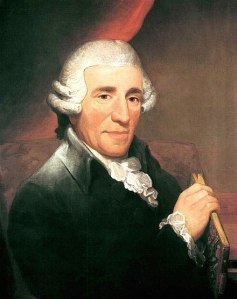Margaret, a friend of my wife, used to write quite a bit. She told us once that I figured in one of her stories but despite that fact – or perhaps because of it – she wouldn’t let us read it. In fact, she wouldn’t let us or anyone else, read anything she’d written. Which gave rise to the question, why had she written her stories in the first place? We both asked her this but got no clear answer. So we have to assume that she wrote for her own satisfaction because, when you come to think of it, she did have one reader. Herself.
I am not suggesting that Margaret is typical in this respect. Or in many others. For example, she disputed that there was such a thing as poetry. When I wasted a couple of hours drafting a response to her view, she replied along these lines: I take these points but I still think . . . Putting it another way, she didn’t take these points at all. Her view was that poetry was an invention of people in the upper classes who were pulling a fast one on their social inferiors. You could call this approach Marxist insofar as it rested on class distinctions. And this was odd in itself, because she was very well off.
With the exception of the Margarets of this world, most people would assume that writing is a form of communication with the greater world, though there are a few exceptions. Those who keep diaries might well prefer that others don’t read them, allowing them to communicate their thoughts and feelings to the page, paper or electronic, without fear of contradiction or exposure. Some are so apprehensive about it that they resort to code (for example, Samuel Pepys and Anne Lister). Then there are those who write memoirs of their lives for which the only intended audience is their children and grandchildren, and who would have a problem with that?
But Margaret was not writing a diary or a memoir. She could have chosen to publish her stories but had no intention of doing so. But at least she had the choice. There have been some who have been obliged to have their writing circulate in manuscript, passed from hand to hand. An obvious case of this was samizdat in the Soviet Union – which might well make a return under the oppressive regime of Vlad the Vicious. This approach was forced on writers such as Mihail Bulgakov who were frowned on by the authorities. Of course, those same writers would probably have chosen to publish in the traditional way had they been able to do so.
Moving to the realm of music, it is interesting to compare the reputations of Joseph and Michael Haydn. It is almost always the case that mention is made of ‘Haydn’ as if only Joseph wrote music.
In fact, his brother Michael wrote music of great quality and a lot of it. But where Joseph made sure his music was published, Michael made no attempt to publish his.
This did not prevent his reputation reaching far and wide during his lifetime. His work was commissioned by the Spanish court (Missa Hispanica) and he was honoured in Sweden. Mozart, who had some trouble with sacred music when it came to style, wrote to his sister asking for copies of Michael’s work. And Leopold Mozart, while doing his best to undermine him in favour of his son in public, privately expressed a true appreciation of Michael Haydn’s talent.
When Michael died his achievements gradually faded from view. There are probably two reasons for this. As was recognized during his lifetime, he excelled in sacred music, and some people prefer symphonies and concertos, though he wrote quite a few of them as well. But a major factor will have been that his works, never published, were not easily available. It was necessary to search them out.
We are fortunate now that they are being sought after and performed, often to a very high standard. Discographies may not reflect this much, but there have been many live performances in recent years, some of them exceptionally good. Which is where Youtube comes into its own and where you can find them if you look.
The following performance is outstanding.
(The wonderful Hanover Girls Choir on this recording should not be confused with the Hanover Choir based in London, which is named after Hanover Square and includes male voices.)


